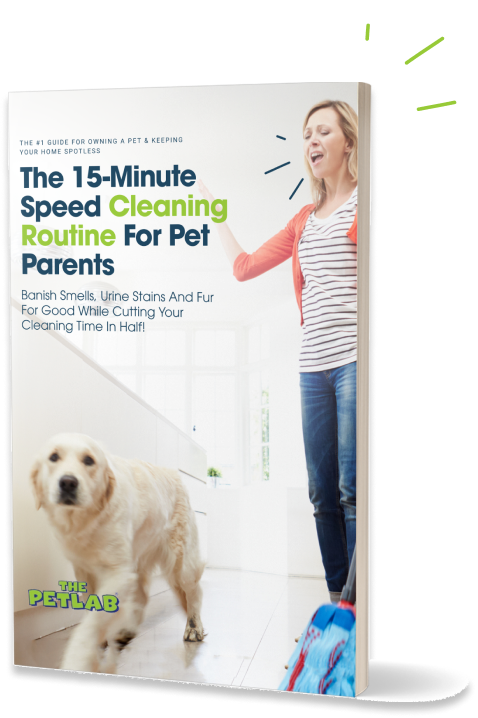Cat spray - like waking up early, cold showers, and wet socks - is one of those things you just never get used to. Even as a certified cat lover! But why do cats spray anyway? And, more importantly, how do you stop this unwanted behaviour? We did ALL the research, so you don't have to.
Cat spraying behaviour: FAQs for perplexed cat parents
FYI, many cat parents describe this undesirable feline habit as their baptism-by-fire era... 😅 Still, we can make it less frustrating by answering your most pressing cat-spraying questions.
What is urine spraying?
Cat spraying, also called urine or scent marking, is a form of inappropriate elimination in cats. That is, peeing outside the litter box. But spraying is not the same as normal urination!
Urination is a biological function where your cat relieves himself by emptying his bladder. This is typically done in a squatting position.
Spraying is intentional, sometimes assertive, behaviour that involves forcefully depositing small amounts of urine in socially significant (noticeable) places.
Recap: Big puddle = pee. Small puddle = spraying.
Unlike other forms of inappropriate elimination, urine spraying isn't rooted in standard litter box issues.
Why is my cat spraying?
Humans use words, gestures, and facial expressions to communicate. Cats, on the other hand, communicate mainly via scents. That's why they have an extra olfactory organ, the vomeronasal or Jacobson organ, that allows them to smell with their mouths! Cool, huh?
When your kitty sprays, he's leaving an odiferous, information-rich message to himself, fellow felines, and other animals. Cats do this because of stress (typically environmental), to mark territory, assert dominance, and for mating purposes. Indoor spraying could also be a sign your furry friend doesn't feel safe in the home. 🙁
Do all cats spray? Do female cats spray? Do neutered cats spray?
Whether male or female, desexed or intact, all felines can spray. In fact, up to 10% of males and 5% of females may keep spraying habits post-op. This is called reactionary spraying, whereby new stressors in the kitty's life, rather than reproductive hormones, trigger the behaviour. Nevertheless, cat spraying remains more common in intact males.
When do cats start to spray?
Marking behaviour starts around a cat's sexual maturity. That means you'll begin noticing this habit in most cats at around 6 months old. It can happen earlier, though, at about 4 to 5 months in male cats.
What are the signs of cat spraying?
Tell-tale signs are as follows:
- The feline is standing up.
- The kitty's tail is raised (upright), and the tip may be quivering.
- There may be treading of the paws.
- Felines mostly back up and point their bums towards their target. This is typically a vertical surface like a wall, shrubs, or full-length curtains.
What does cat spray smell like?
The urine from cat spray has a distinct odour best described as intoxicating. And that's putting it kindly!
Some say it smells like skunk. Others describe it as sour socks. Mouldy, musty, maybe even rancid?
Either way, we all agree: It smells B-A-D! This is because spray has additional pheromones on top of urea.
How long does the smell of cat urine or spray last?
The short answer: Years and years. But I don't want to give you nightmares or have you rushing to order new furniture, so let me qualify that statement.
Cat urine odours will last forever and a day unless you use an enzymatic cleaner like PetLab's E.N. Zyme Urine Stain & Odour Remover. Better yet: Grab our dynamic duo, PetLab Starter Pack, and leave no stone (err, surface?) unturned!
Our Double Strength Formula™ boosts cleaning power, meaning there's no stain or odour you won't be able to resolve. That's right: NO MORE SMELLS! The trick is to thoroughly clean affected areas. This discourages your pet from returning (and re-marking) the same spots around the house.
Last but not least: Is cat spray harmful to humans?
Yes and no—it depends on the circumstances. Just take note that exposure to high concentrations of ammonia can trigger all sorts of lung diseases and allergies.
Is your cat's spraying causing friction in your relationship and a source of frustration in the family? Unable to look past those soft, jellybean-like paws and adorable whiskers because all you remember is the smell of cat spray?
Then it's time to order the winning combination of PetLab E.N. Zyme Urine Stain & Odour Remover and Healthy Habitat Pet-safe Disinfectant Cleaner. You know you're in good company when over 100,000 happy pet parents say, "It works!"


